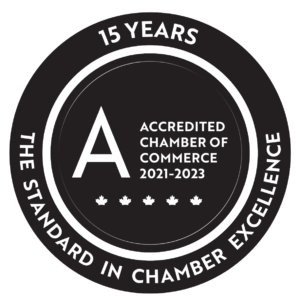 By Ben Molfetta
By Ben Molfetta
With online marketing, content is king!
Fresh, relevant, and compelling content is central to all online marketing activities. To be successful online, businesses must commit to becoming content developing organizations. As more consumers and buyers rely on online sources to make purchasing decisions, organizations that consistently disseminate valuable and interesting content will gain a competitive advantage.
Recent research from DemandGen reports that 51% of B2B buyers rely on online content to make their purchasing decisions. According to the National Retail Association, 50% of purchases are influenced by online research. Regardless of whether you sell to other businesses or to consumers, online content will impact your sales results.
Here are five steps to creating a successful content marketing strategy:
1. Understand the Overriding Objectives for Online Content
Relevance: Content must make an organization relevant to both target audiences/communities of interest and search engines.
Authority: Content must establish an organization as a “go-to” source for information about a specific topic. Online authority establishes an organization as a subject matter expert.
2. Set Specific Goals
Your goals for content marketing should be specific to your needs and reflect your business strategy and business development goals. Content marketing objectives may include:
- Increasing website traffic
- Search engine optimization (SEO)
- Increasing brand awareness and visibility
- Improved customer service, trust, and loyalty
- Driving inbound leads
- Creating online authority
- Generating inbound links
- Educating prospects
- Increasing conversion rates
- Developing industry credibility
- Expanding visibility and reach
3. Understand Your Target Audience
You need to understand what information/content will be of value to your target market. These are some of the questions you must answer before diving into online content creation:
- Who are we targeting?
- What are their particular areas of interest and hot buttons?
- What connects my organization with my target audience (e.g. core values)?
- Who are prospects interacting with? Where?
- What information are prospects looking for?
- How educated is the typical prospect on the subject matter?
4. Test Approaches to Content
Prior to developing and distributing content in earnest, you should test which approaches work best for your audience, industry, and business. Some of the elements to test include:
- Topics
- Headlines
- Offers or calls to action
- Tone (voice)
- Content formats (e.g. blog, case study, video, etc.)
- Frequency of content distribution
- Distribution channels (e.g. Facebook, Twitter, email, etc.)
After you initially determine what works best for you, move forward with the understanding that you should always be analyzing and refining your content strategy – there are always ways to improve.
5. Create a Content Calendar to Stay on Track
A content calendar is a necessity for “operationalizing” the content marketing strategy. It details the content that will be developed and distributed over a specified period of time – usually from three to twelve months.
The content calendar includes information (by target market) related to content topics, formats, frequency, distribution channels, and target distribution dates.
Investing in Content Marketing
Business owners need to ask themselves: how am I going to enable content marketing within my organization? Successful content marketing doesn’t happen overnight. It requires a commitment to consistently create valuable, quality content.
Content marketing is a worthwhile investment in your organization’s long-term sustainability. If you haven’t already, it’s time to get started.
Ben Molfetta is the co-founder of Core Online Marketing. Core helps small and mid-sized businesses grow by planning, implementing, and executing online marketing strategies that drive sustainable revenue growth. Visit coreonlinemarketing.com or email Ben at [email protected].




